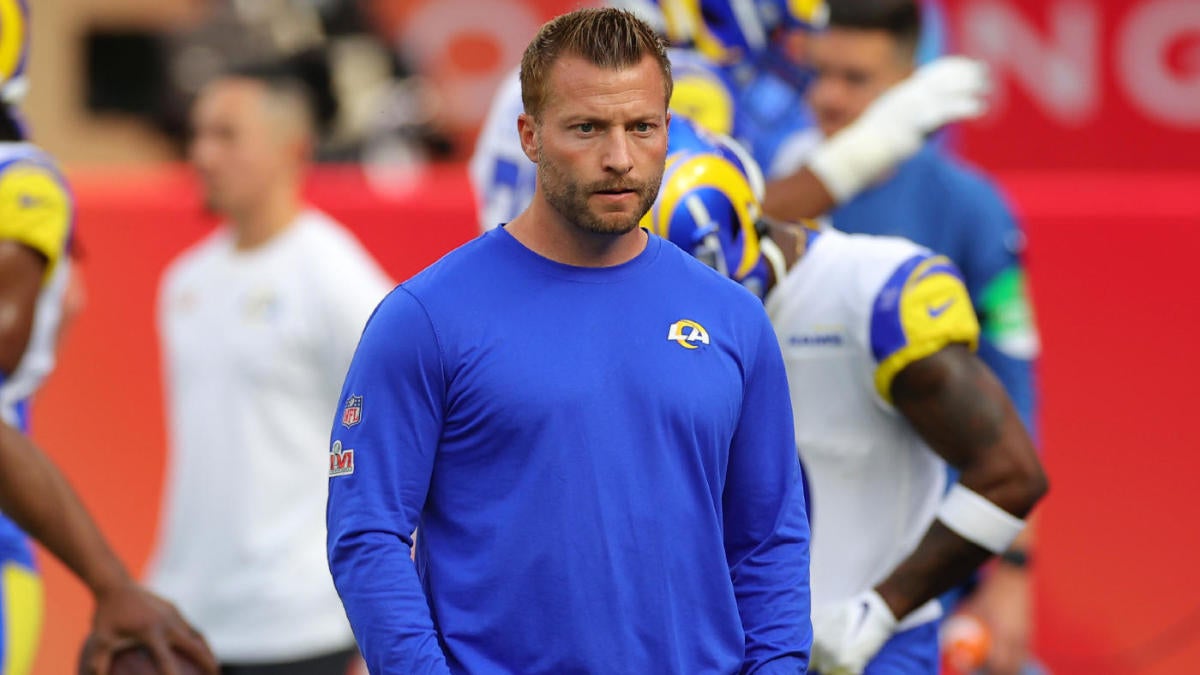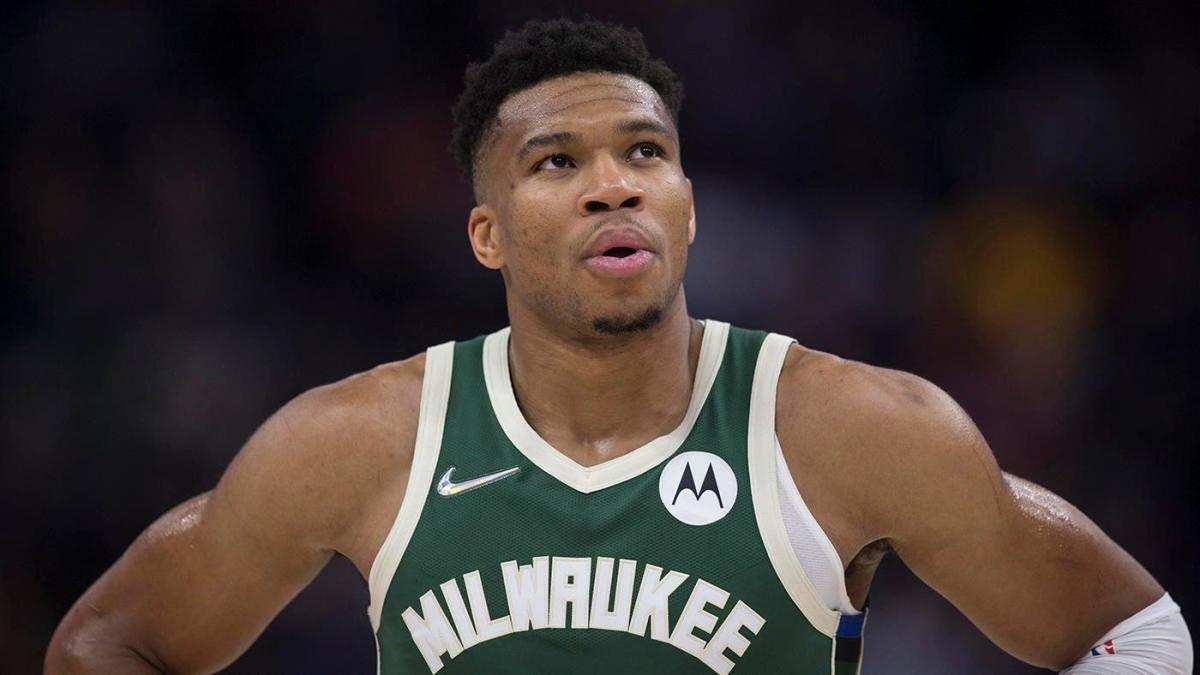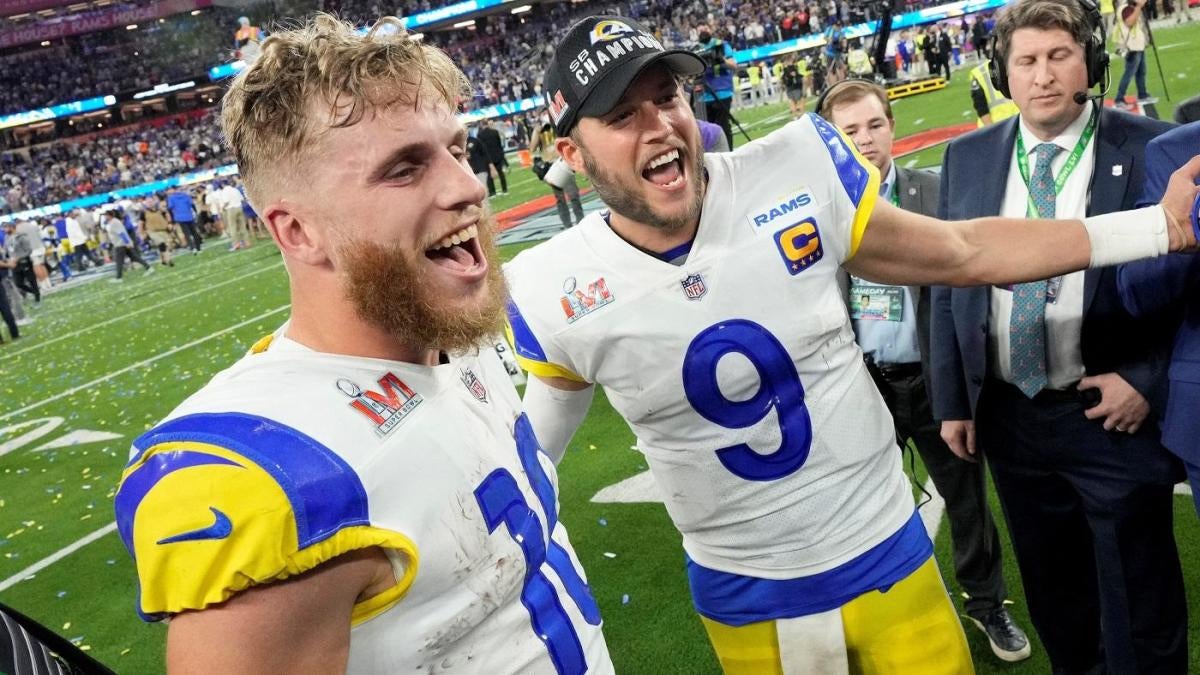Sean McVay’s early-retirement talk could become a common theme in NFL’s new age of thinking
Written by ABC Audio ALL RIGHTS RESERVED on February 15, 2022

A few years have passed since the football world collectively pondered whether or not NFL players would begin retiring, or stepping away, at the heights of their careers at a more rapid rate. The more we learned about concussions, the more players starting finding their voice and expressing the interests beyond the game, the higher salaries rose, and as the backlash against opioids-as-a-pain-management mechanism grew, it was fair to wonder if a trend was afoot.
When Andrew Luck walked away at age 29, before the start of the 2019 season, many a think piece was written about what it meant for the league, as he followed a trend that included other stars of his era leaving the game by the age of 30; a list that included Rob Gronkowski (briefly), Luke Kuechly, Calvin Johnson, Patrick Willis, Travis Frederick and Doug Baldwin. And undoubtedly, more players will follow, and it’s something worth considering in years to come.
But very few people have mulled, best I can tell, if this same phenomenon — limited as it may be — could be coming to the coaching profession. And I would posit that it very much is. The days of the coaching lifer, for decades at a time, always hard-charging from job to job, might be changing. A course-correction may be coming, and at a moment in which Rams coach Sean McVay, 36, shared his struggles with the all-encompassing coaching lifestyle, and with Sean Payton taking a hiatus after a decade-and-a-half transforming the New Orleans Saints, I suspect they are far from alone.
“I just don’t see in this day and age, with the money (for head coaches) the way it is and with how it’s been built up over the last 10 years … you’re not going to see coaches coach that long,” said one league source who is deeply connected to a multitude of NFL head and assistant coaches. “Certainly, not as long as they have in the past. It’s wearing on them, the lifestyle and the grind can swallow you up, and if you are lucky enough to have won a Super Bowl, you are really ahead of the deal.”
I would suggest that when McVay — who added a Super Bowl title to his resume Sunday night as the youngest coach in the league — met the media on Friday, he ended up speaking for a cohort of his peers when showed introspection and transparency in ruminating on his coaching future during his final press conference leading up to the biggest game of his life. He’s been around this all his life, and has seen mentors like Jon Gruden start their head coaching career at a very young age, burn out, and then retire early, too. And, yes, they almost always come back — even Joe Gibbs after a lengthy sabbatical — but the prospect that many of those hired in their early to mid-30s will opt to focus on their family by their mid-40s could end up being more prevalent than that of players leaving the game before age 30.
Would not surprise me in the least, especially with coaching salaries projected to continue to soar, and with NFL revenues soaring, and with owners having a seemingly unquenchable desire to hire younger head coaches. McVay may well be on that path to some degree already.
“I know I love football and I’m so invested in this thing,” McVay said over the weekend, “and I’m in the moment right now. But at some point, too, if you said, ‘What do you want to be able to do?’ I want to be able to have a family, and I want to be able to spend time with them.”
Having gotten to know some of the other coaches who have already emerged from this Kyle Shanahan/McVay coaching tree, and having a feel for how grounded, humble, smart, compassionate and self-aware many of them are, I would imagine that, even they are still early in their coaching journeys, they have already contemplated similar thoughts as they envision trying to strike the impossible balance of their uber-competitive profession, and mounting needs and demands and callings at home. The work/family balance is difficult for many, and can be particularly acute for those accustomed to 18-hour days in which the only interactions they have with human beings during sunup are with players and fellow coaches for much of the year.
“The burnout factor is very real,” said one longtime NFL coaching agent. “And many of this generation of coaches are more in tune to what would be required of them at home if they want to play a meaningful role in the lives of their kids. I believe there is an evolution of sorts going on with that. I can see that.”
As more and more entities get involved in the broadcasting of NFL products (Amazon, etc.) and with men like Tony Romo resetting the financial parameters for what top broadcasters can earn, the allure of the media will get even stronger in the years to come. The opportunity to make similar money, while living a far more robust and rewarding lifestyle, working what amounts to a few months a year, will remain a siren song. More and more young coaches will eventually heed it, I believe, especially those who achieve some level of success.
There were many close to members of McVay’s staff who would have whispered to you weeks ago, before this became more of a story, that they doubted McVay could maintain the ridiculous grind he is on for all that much longer. Win big or lose big, didn’t matter; another few years, maybe five. But not beyond that. He demands too much of himself in his pursuit of greatness, and in private moments some could see it already taking a toll. The chatter about him following Gruden’s path into the broadcast booth — where McVay will crush it with his personality, humility, and other-worldly recall — was making the rounds in coaching circles by midseason.
And there is quite likely plenty to that. That time will come. Probably nearer than far. But I don’t get the sense it’s imminent. In Matthew Stafford he has the quarterback he has always sought. McVay isn’t even married yet, let alone a dad, and the opportunity to win big with a franchise QB is a pull that is far from expunged no matter the outcome of any one game.
“If he didn’t have Stafford I’d say he’d probably look at it (retirement) more seriously,” said one source close to the coach. “Getting Stafford really changed his whole outlook. He really believes in him and it’s showing. But will he seriously coach as long as some of these other people have, I sincerely doubt it.”
Whenever he steps aside, he’s more than earned that right. Mental health, physical health, familial health – all of it matters more than any football game. McVay has already created a coaching lineage and reached heights in mere years that most coaches don’t attain in entire careers. And he’s already ascertained that those accomplishments alone can be but only so fulfilling.
The post Sean McVay’s early-retirement talk could become a common theme in NFL’s new age of thinking first appeared on CBS Sports.






